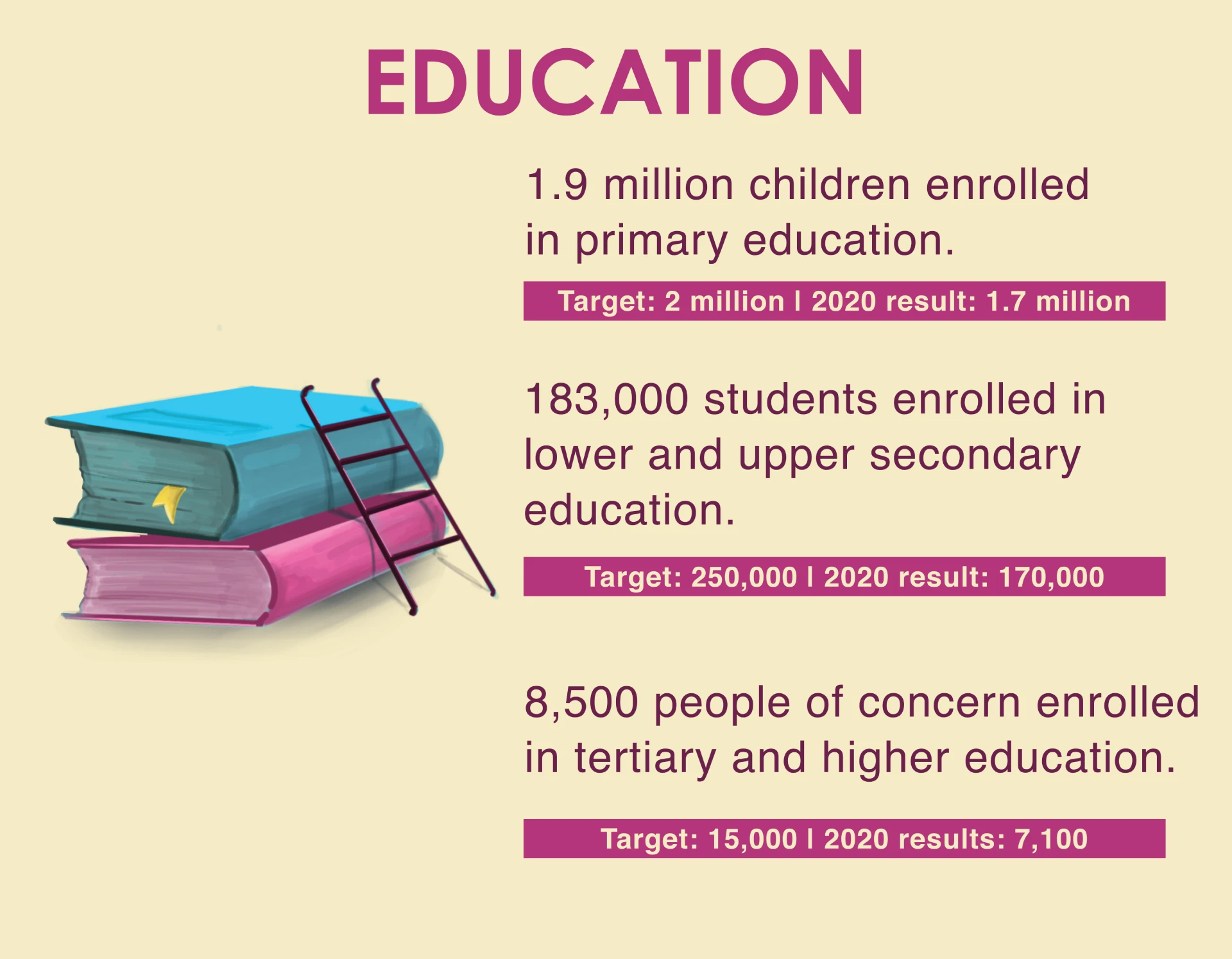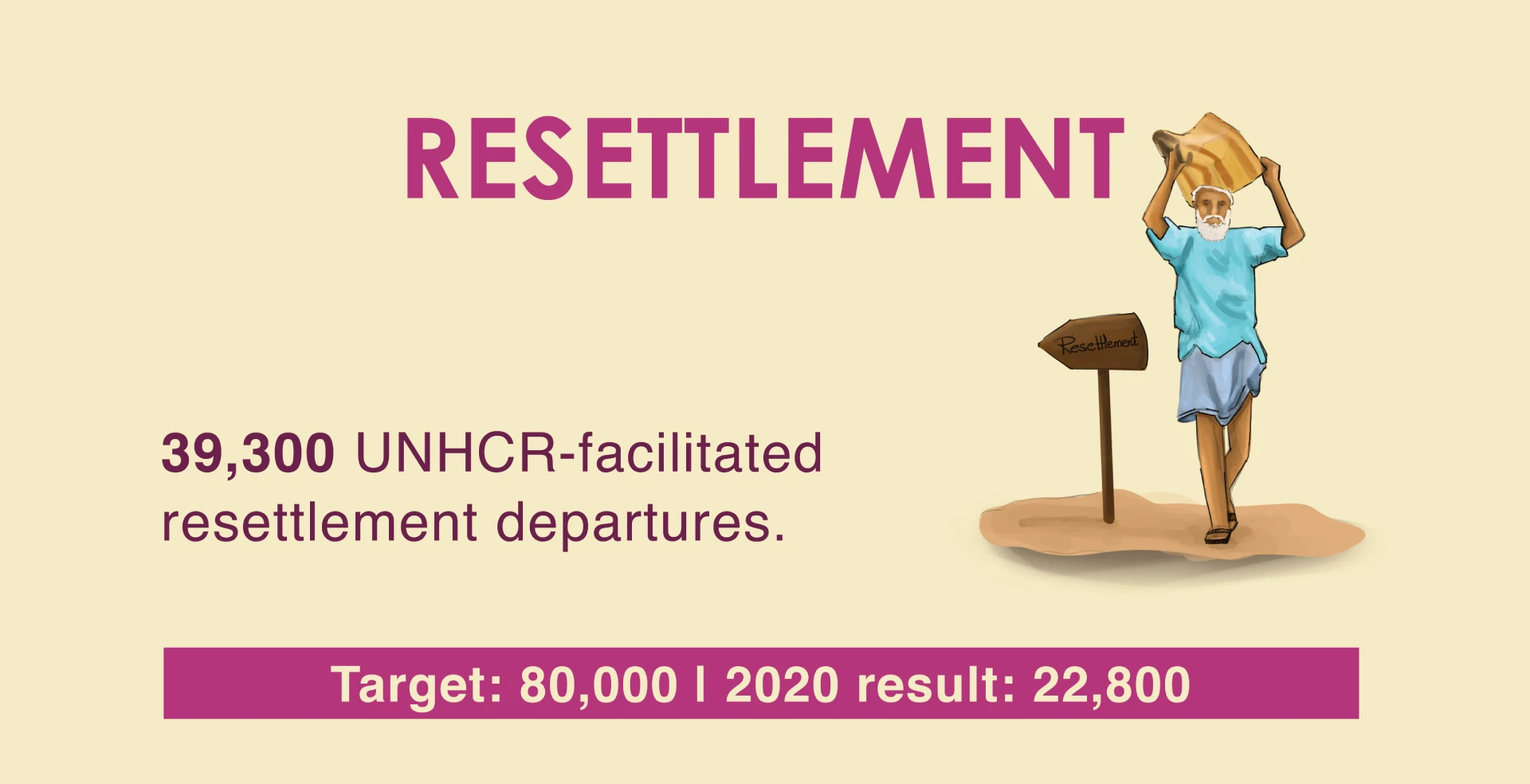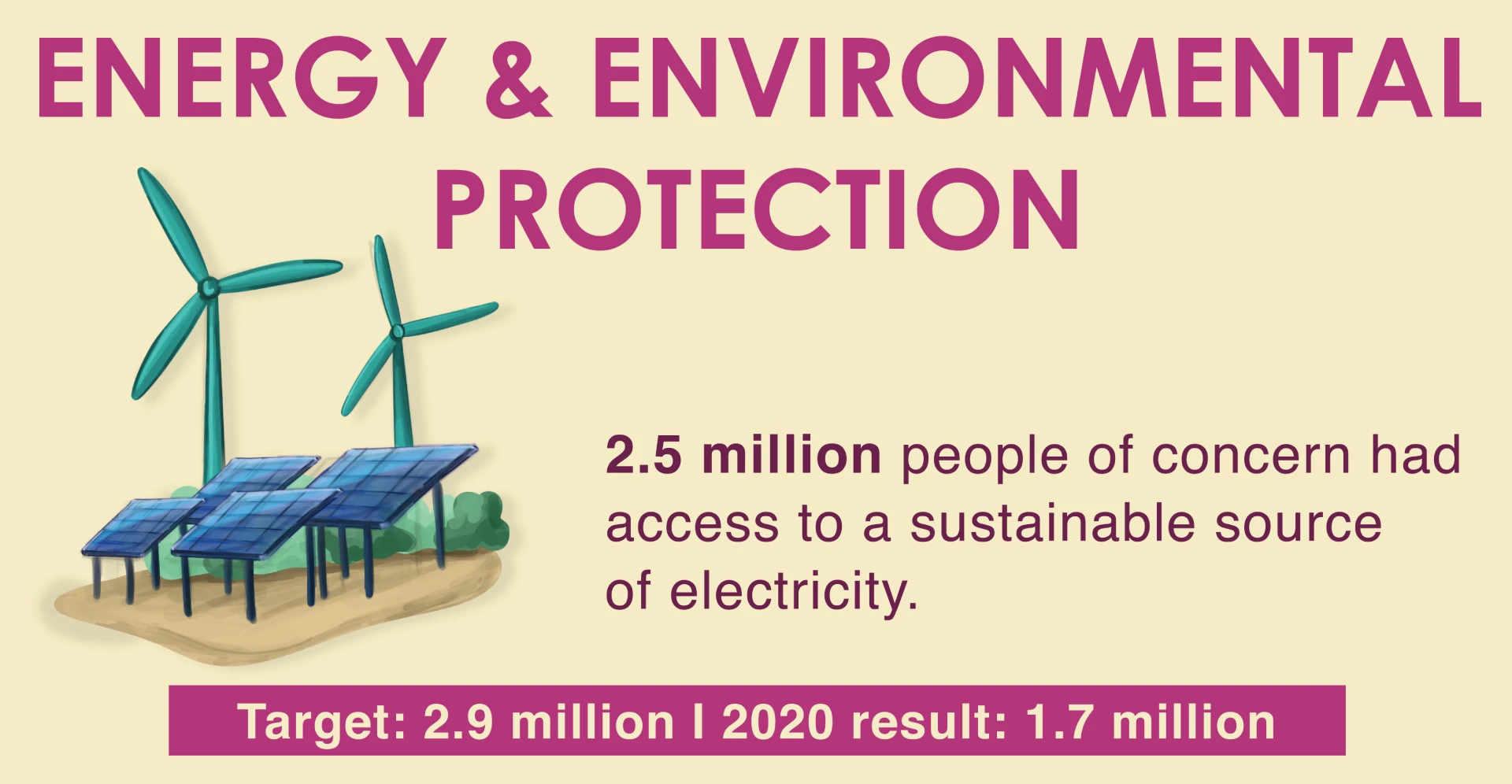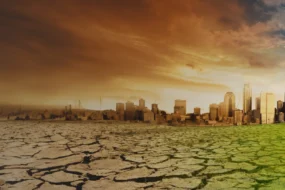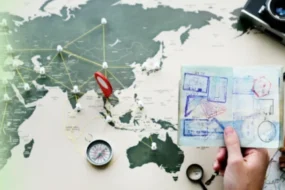- Home
- Current Affairs
- UNHCR’s Efforts in 2021
UNHCR's Efforts in 2021:
Addressing Humanitarian Crises, Protecting Refugees, and Finding Solutions for Displaced Populations
9-May-2023
The United Nations High Commissioner for Refugees (UNHCR) is responsible for coordinating global efforts to protect refugees and find solutions to their problems. The organization helps refugees seek asylum and find safe places to live, as well as supporting voluntary returns and lasting solutions.
UNHCR works with former refugees, internally displaced people, stateless individuals, and those with disputed nationalities, while advocating for human rights and peaceful dispute resolution.
The Global Report 2021 provides an overview of UNHCR’s work in protecting and improving the lives of millions of people of concern, including refugees, asylum seekers, returnees, internally displaced people, stateless persons, and others. The report outlines the organization’s accomplishments and challenges in responding to numerous crises and increasing humanitarian needs worldwide.

UNHCR’s registration process is crucial for providing targeted protection and assistance to refugees and displaced persons, as well as for identifying trends and patterns in population movements. Despite COVID-19 restrictions, UNHCR expanded its use of digital and remote registration methods and invested in contactless biometrics technologies. Its Population Registration and Identity Management EcoSystem (PRIMES) was deployed to an additional 17 operations, incorporating a case management tool, biometrics capability, and a global distribution tool. UNHCR also expanded user-support activities and initiated a global survey to better understand registration and documentation environments and identify gaps in the system.
Despite the challenges of the COVID-19 pandemic, progress was made in preventing and resolving statelessness in 2021. 81 out of 279 pledges made by States to address statelessness were fully or partially implemented by the end of 2021. Thirteen countries reformed their nationality laws, policies, and practices to prevent statelessness, and six countries strengthened the identification and protection of stateless persons. UNHCR also strengthened its global advocacy efforts, and several governments and regions developed and adopted action plans to address statelessness.


UNHCR and States have worked to adapt asylum systems and provide guidance on displacement situations and refugee status determination during the COVID-19 pandemic. UNHCR provided country guidance, released RSD training products, and supported differentiated case processing modalities and backlog management. Many States effectively processed asylum claims, such as Sudan’s group-based approach, Mexico’s differentiated case processing, and South Africa’s backlog reduction project.
In 2021, UNHCR worked globally to protect and assist children and youth in crisis and displacement situations. They developed technical guidance and a data dashboard for child protection, and worked to strengthen national child protection systems and establish child protection coordination. Despite challenges such as limited access to services and legal and documentation risks, progress was made in countries such as Mali, Niger, Peru, and Nigeria.

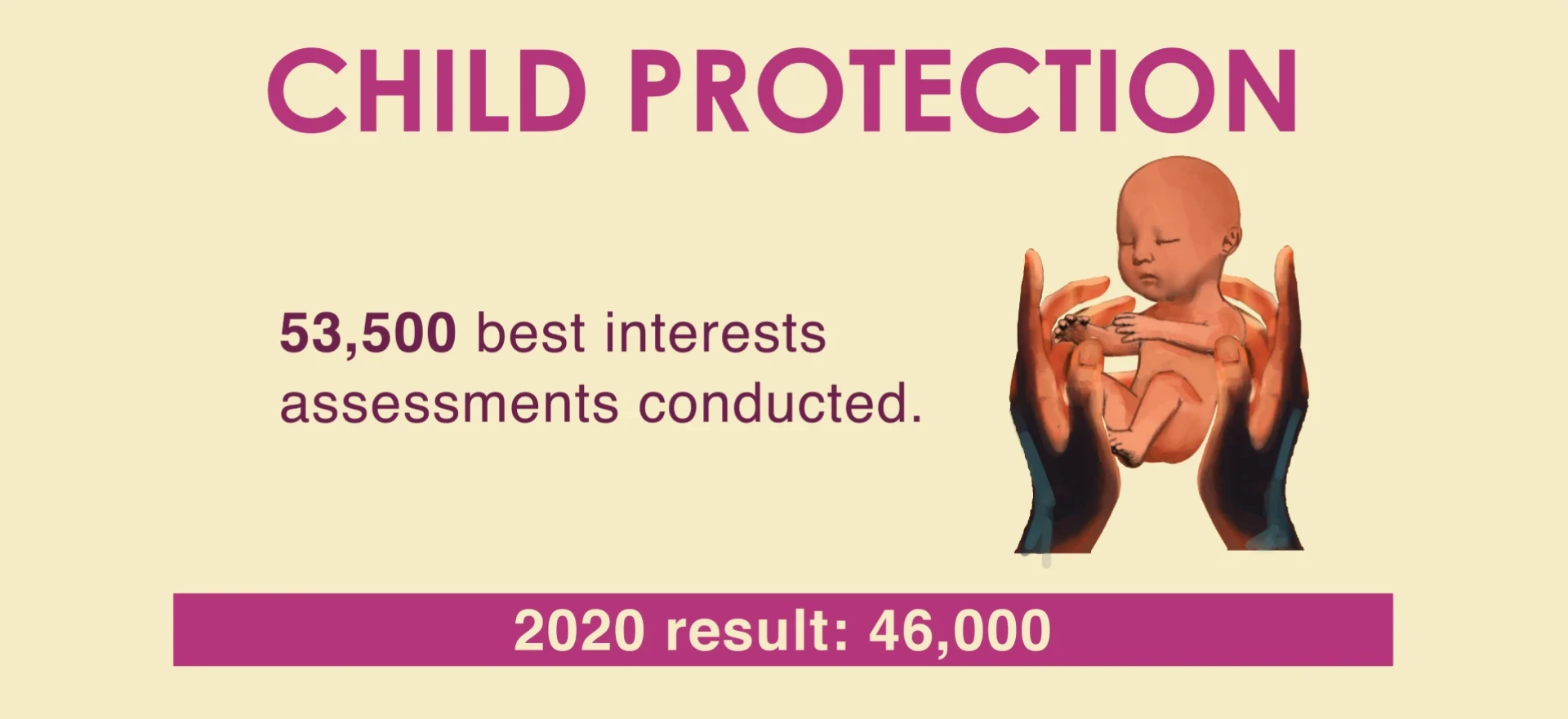
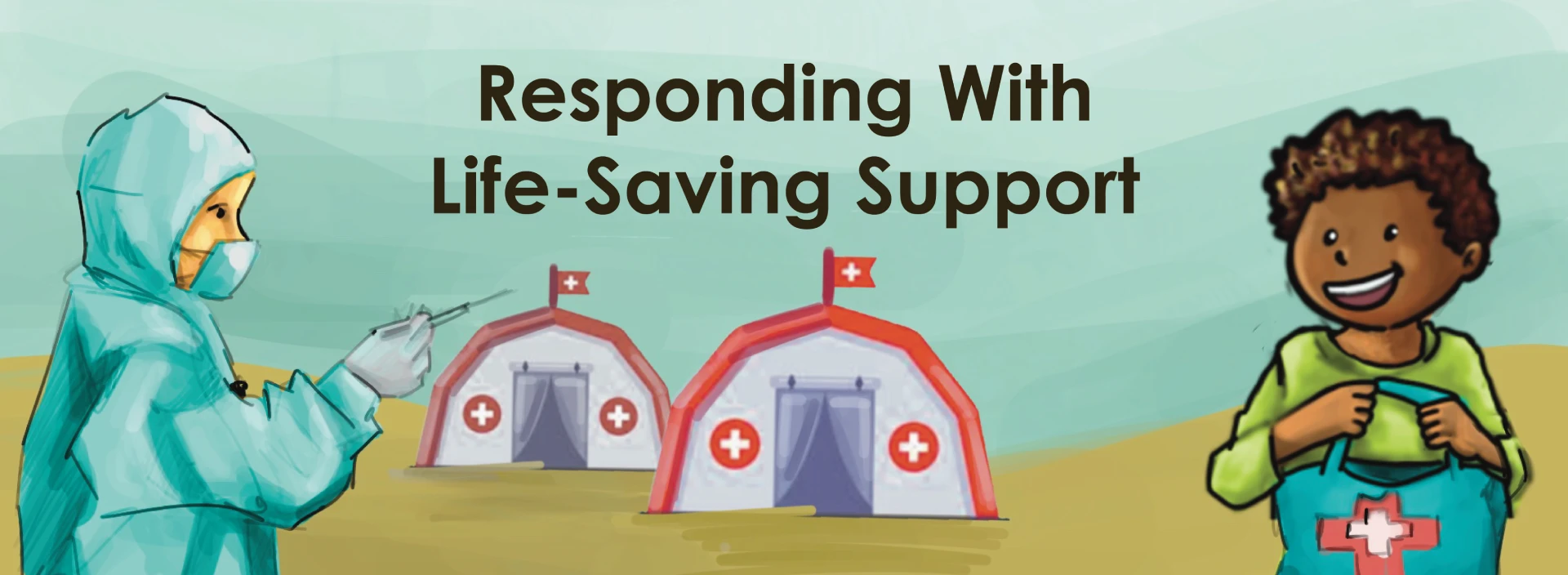
Humanitarian crises are becoming more complex due to the effects of COVID-19 and climate change, resulting in spikes in humanitarian and protection needs. UNHCR has responded by providing emergency support to internally displaced people and refugees in various countries. The agency has also updated its policy on emergency preparedness and response to reinforce coordination and accountability in refugee and internal displacement emergencies. Quality gender-based violence prevention and response services, as well as life-saving support such as cash assistance, access to healthcare and shelter, have been provided to meet the immediate needs of forcibly displaced people and host communities.
In addition to its emergency response efforts, UNHCR continued to work towards finding long-term solutions for displaced populations. This included efforts to support local integration, resettlement, and voluntary repatriation for those who are able and willing to return to their homes. UNHCR also worked to address the root causes of displacement through advocacy and engagement with governments, humanitarian actors, and other stakeholders. The organization continued to prioritize the needs and rights of the most vulnerable populations, including women, children, and persons with disabilities, and worked to ensure that their voices were heard and their needs were addressed. Overall, UNHCR’s efforts in 2021 reflect the ongoing and urgent need for humanitarian support and protection for forcibly displaced populations around the world.
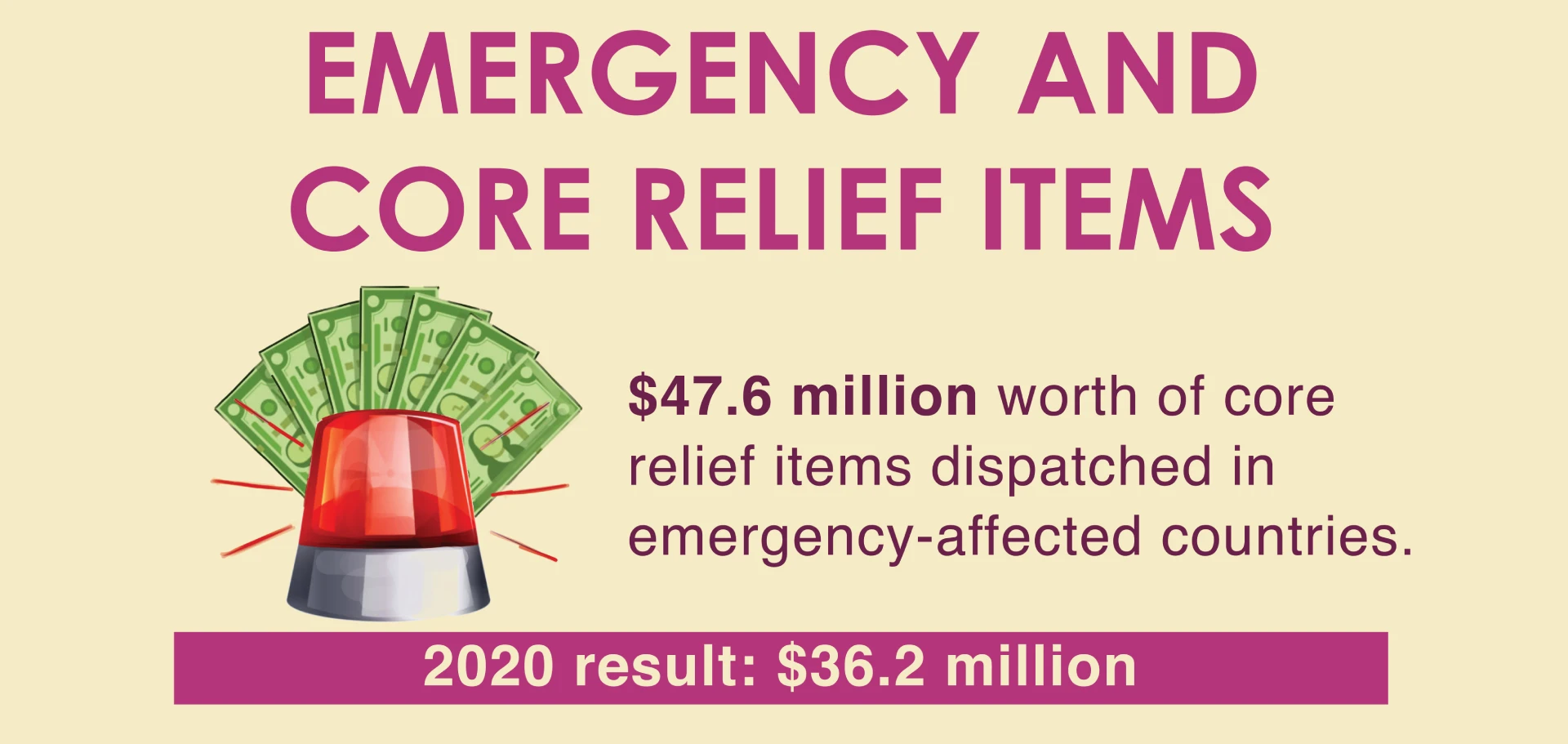






In 2021, UNHCR focused on finding solutions for displaced populations through a whole-of-society approach that emphasizes self-reliance and inclusion. This approach prepares refugees for their futures through voluntary repatriation, resettlement, and complementary pathways for admission to third countries. Self-reliance can reinforce protection and dignity and contribute to the development of markets, better services, and social cohesion. UNHCR also delivered education, livelihoods, and access to energy, promoting the well-being of refugees and host communities.
However, the pandemic further disadvantaged forcibly displaced and stateless people, who were disproportionately affected by its socioeconomic consequences. In response, UNHCR strengthened its partnerships with major development actors and multilateral development banks and advocated for the development of favorable laws, policies, and practices that promote socioeconomic inclusion and the establishment of residency in some contexts.
